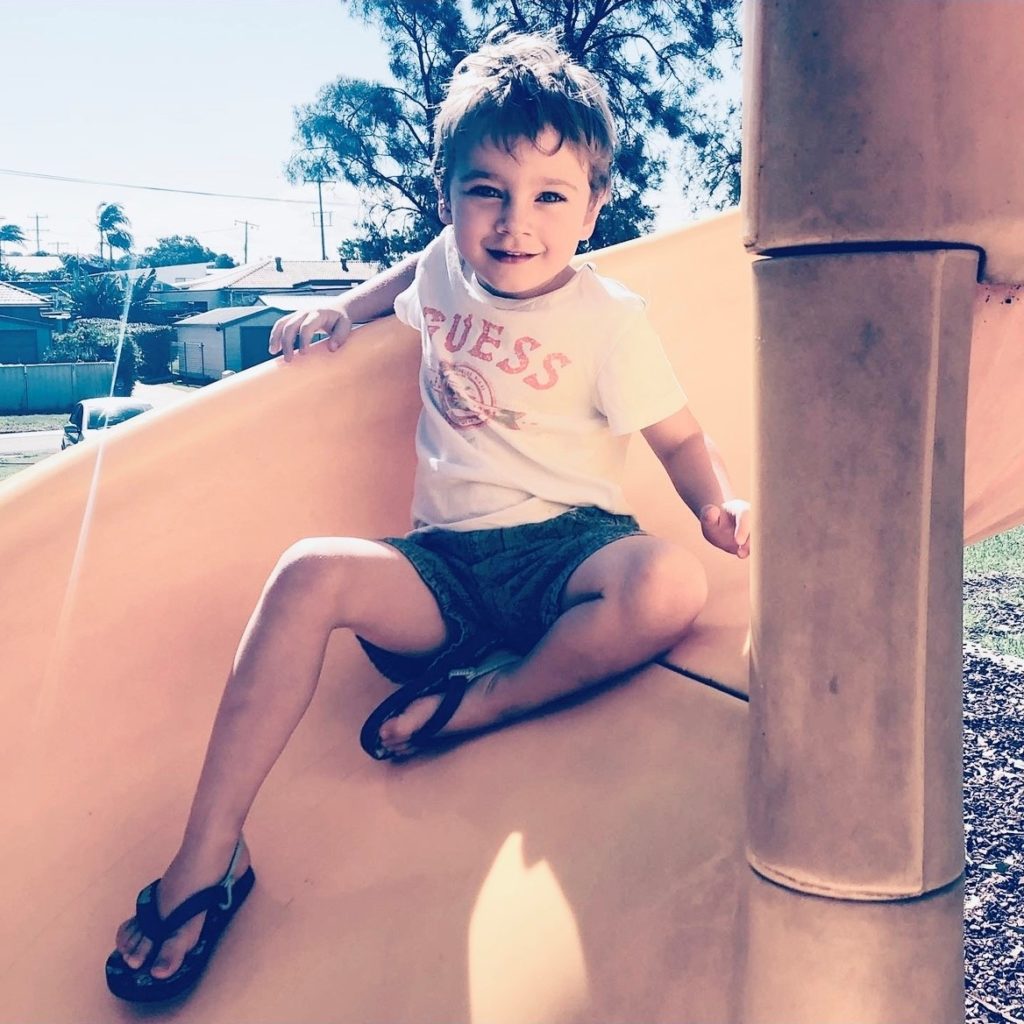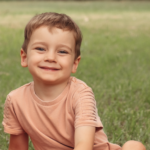As told by his mother, Meagan
Arlo, aged 4, was diagnosed with post-infection Bronchiolitis Obliterans (a rare chronic disease) in December 2020, 15 months after first being hospitalised for adenovirus and pneumonia complications. An HRCT scan revealed the damage to his lungs.
“For about a week before his first hospital admission, Arlo had been having high temperatures and was not eating or drinking well, plus he had cold symptoms. After being discharged, he continued to have difficulties breathing, a crackly sound in his chest plus a chronic cough.
“I knew it wasn’t going to be great news when our usual paediatrician told us that he couldn’t work out why Arlo was not recovering. Yet when he was diagnosed, following a referral to the John Hunter Hospital respiratory paediatric team, I was still in shock … I remember crying on the way home as it dawned on me that this was never going to go away.”
Meagan’s thoughts turned to all the things Arlo would not be able to do with a significantly reduced lung capacity and no real chance of improvement. Telling family and friends was also a challenge.
“Our loved ones were just as broken-hearted as we were. Every time we told someone new, it broke our hearts all over again. But they have all been so supportive and respectful of his condition, particularly in the current environment.”
One of the key ongoing challenges is keeping Arlo safe from germs, although Meagan says the family is grateful to have a supportive day-care educator and families.

“We don’t want to bubble wrap him though, so assessing risk is one of the hardest challenges, along with ongoing medications and treatment. It all takes up so much of our day.”
“Sometimes, it feels like we are over-reacting when we say he can’t do certain things or go to certain places. Even now, people still go out with colds. And if Arlo catches a cold, it means so much more, possibly hospital and worsening lung capacity.
Another key hurdle is well-meaning but uninformed claims from others that Arlo will improve; people who say “just put him in swimming” or “he doesn’t seem that bad”.
A rare condition like Arlo’s really benefits from early intervention, yet this doesn’t often happen due to complications with diagnosis.
“We’d love to see more funding for research into treatments and causes, as they really don’t know why Arlo’s body responded the way it did … but we are so grateful for the support we have. When something like this happens, it really shines a light on who you have around you and how they respond to a crisis. And the hospital staff are amazing.”
During Young Lungs Awareness Week, Meagan’s advice to others is to “reach out: join a support group, seek other people with similar experiences and ask as many questions as you can.
“Even as a psychologist, I don’t know where we would be without support services.”
Caring for a child with a lung disease can feel isolating and overwhelming at times. But you are not alone as you navigate the challenges of day-to-day life and help your families to live well.


